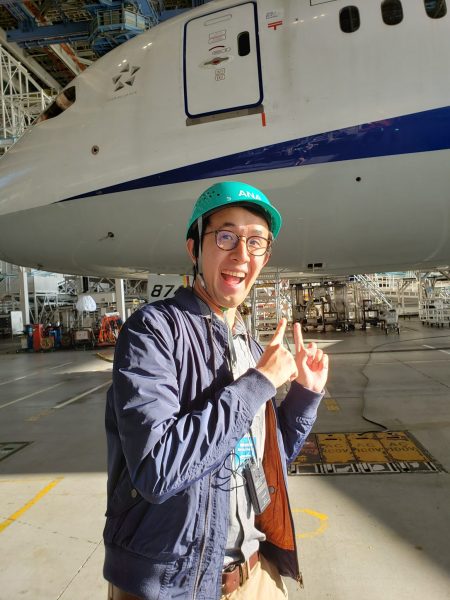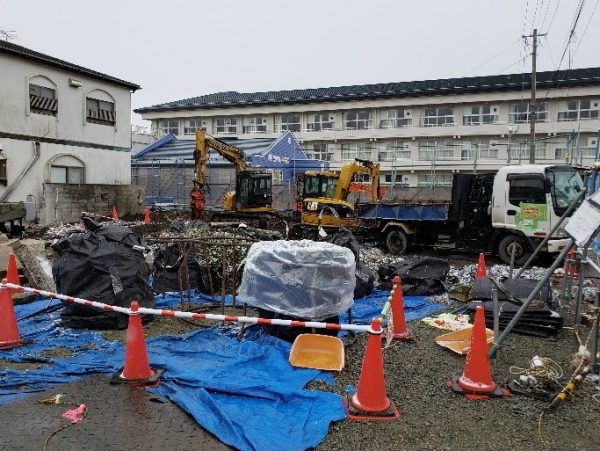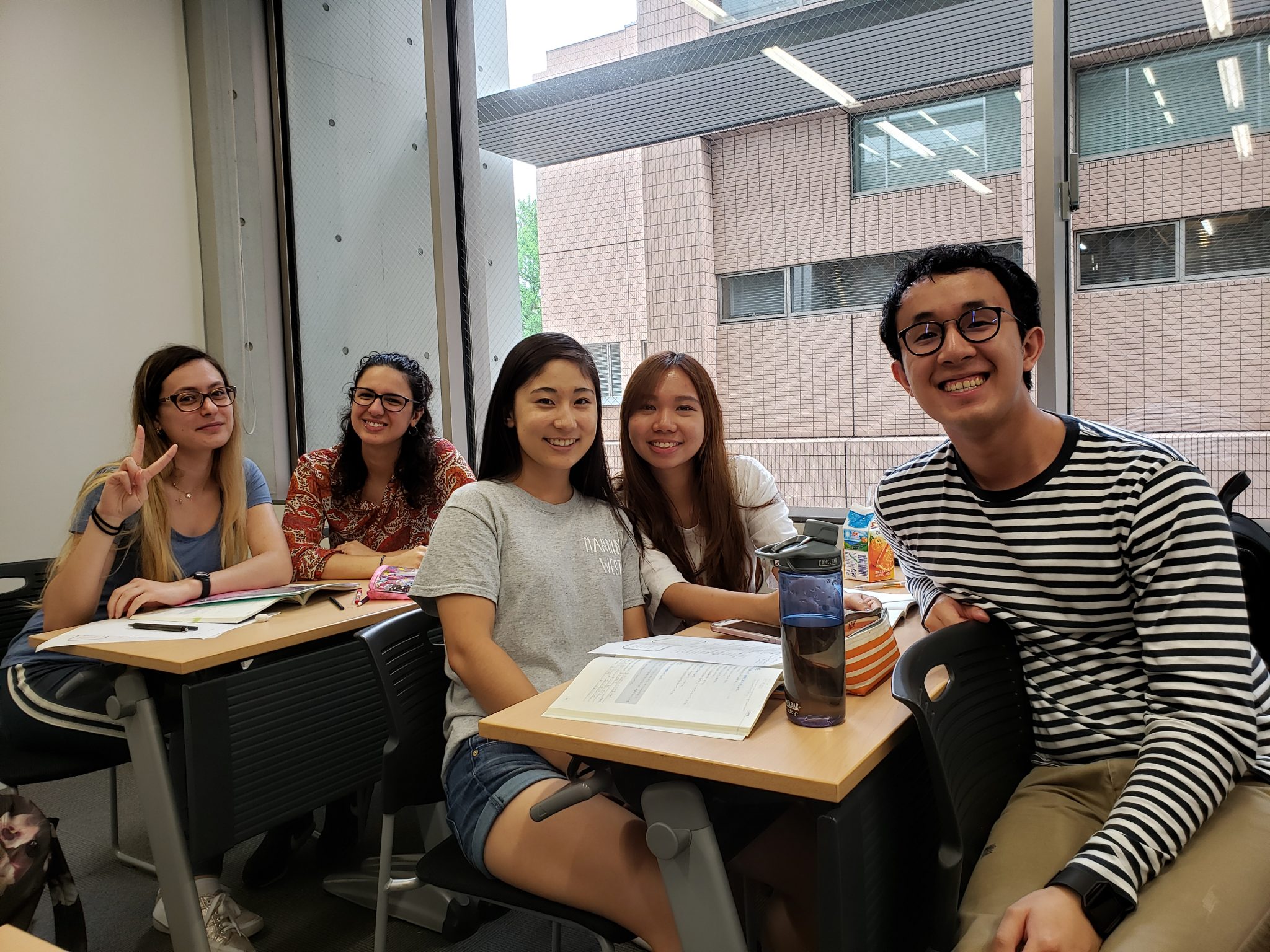
Contributed by Calvin Chan (Integrated BBA, Year 5)
Many of my friends chose to go to America or Europe for exchange, but in my case, I was eager to polish my Japanese and to learn more about the Japanese culture, so I decided to take a year-long exchange at Keio University, Tokyo. During my stay, I took various classes, including business, Japanese history, and Japanese economics, which enabled me to understand the country from multiple perspectives. Learning the difference in business environments and social culture between Hong Kong and Japan was interesting. For example, application of the same marketing theory in Japan could be thoroughly different from Hong Kong, due to the contrasts in social norm and consumer behaviour.
Other than studying, I also took part in various extra-curricular activities, such as visiting the ANA aircraft maintenance center at Haneda Airport. It was amazing to see how the highly disciplined staff conduct their daily maintenance schedule and how they uphold their highest safety standard. During my leisure time, I travelled around Japan to explore the beautiful landscape, discovered delicious local cuisine, and appreciated the rich Japanese culture by attending different kinds of festivals. Moreover, I was lucky to participate in the celebrations of the change of era name from ‘Heisei’ to ‘Reiwa’.


An interesting part of my exchange experience was doing a part-time job. Depending on your Japanese language skill, a wide range of part-time jobs was available for students. While applying and preparing myself for the job, I asked the locals about the job interview etiquette and was fascinated to learn that all candidates are required to dress in the same way – a standard black suit with a black carrying bag. It was then I realised Japan is a more collectivistic society than Hong Kong. As I began working as a customer service agent, my first challenge was to learn the Japanese way of greeting customers, including using the polite form in Japanese. I also had to get accustomed to the unique work culture, such as bowing when I entered and exit my working area.


Another unforgettable experience was visiting the Fukushima area, which was struck by the nuclear disaster during the earthquake on 11 March 2011. As a first-time ghost town visitor, I was taken aback by the eerie silence and slights of damaged properties and debris on the ground. Trees were chopped down to prevent the spreading of radioactive materials, with contaminated soils were dug up and piled alongside main roads, covered only by green plastic sheets. It was touching to see residents making an effort on rebuilding their home by introducing tourism and agriculture back into the area, despite the clean-up work still in progress. I also had the chance to meet with the project lead of a stress relief fund whose primary goal was to achieve local sustainable recovery by assisting farmers in the local area to produce new products and introduce them to the market. Witnessing the project in action, I have learnt a valuable lesson in exercising corporate social responsibility, product development, and marketing in Japan.


Going on exchange is a fun experience, you would make friends from all over the world, gain an in-depth understanding of the local culture and society, and make unexpected and yet surprising discoveries. If you have the opportunity to apply for academic exchange during your study in CUHK, do take this valuable chance to create your own unforgettable experience.

